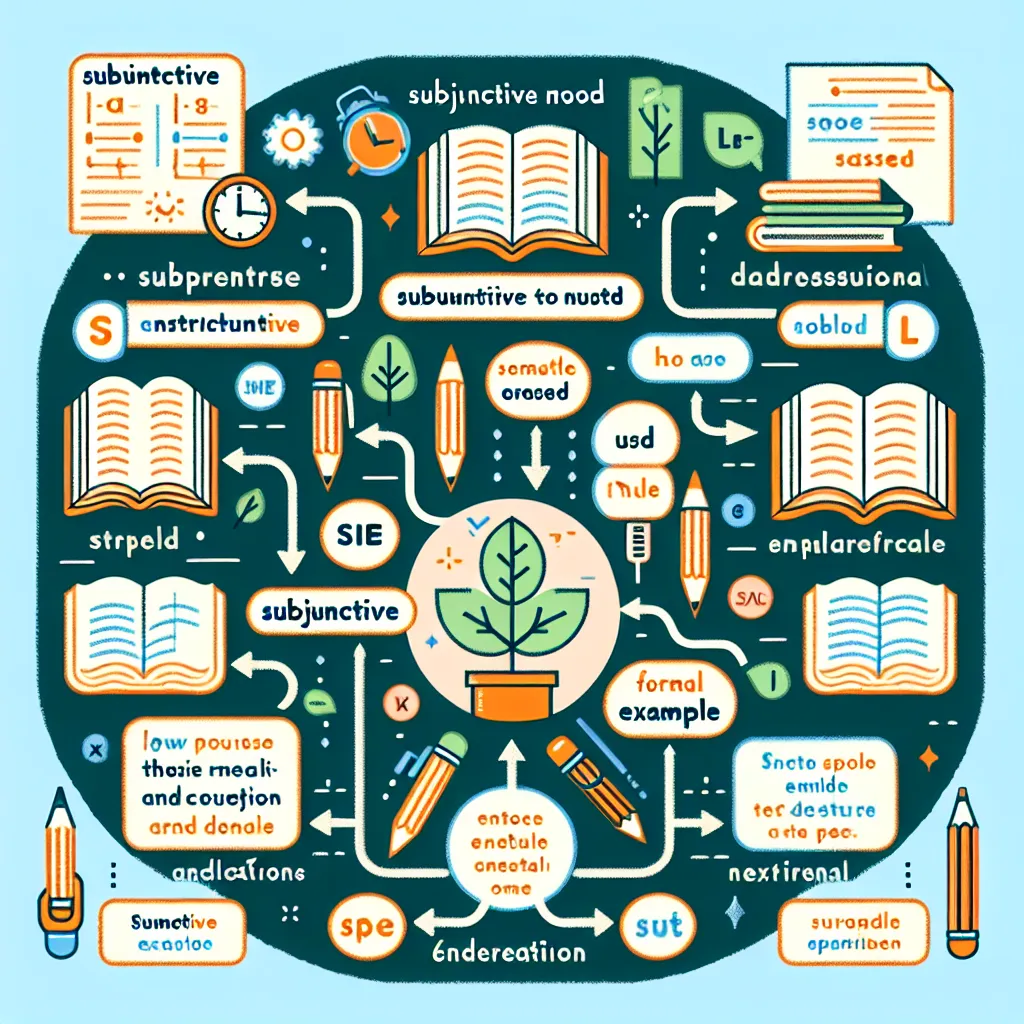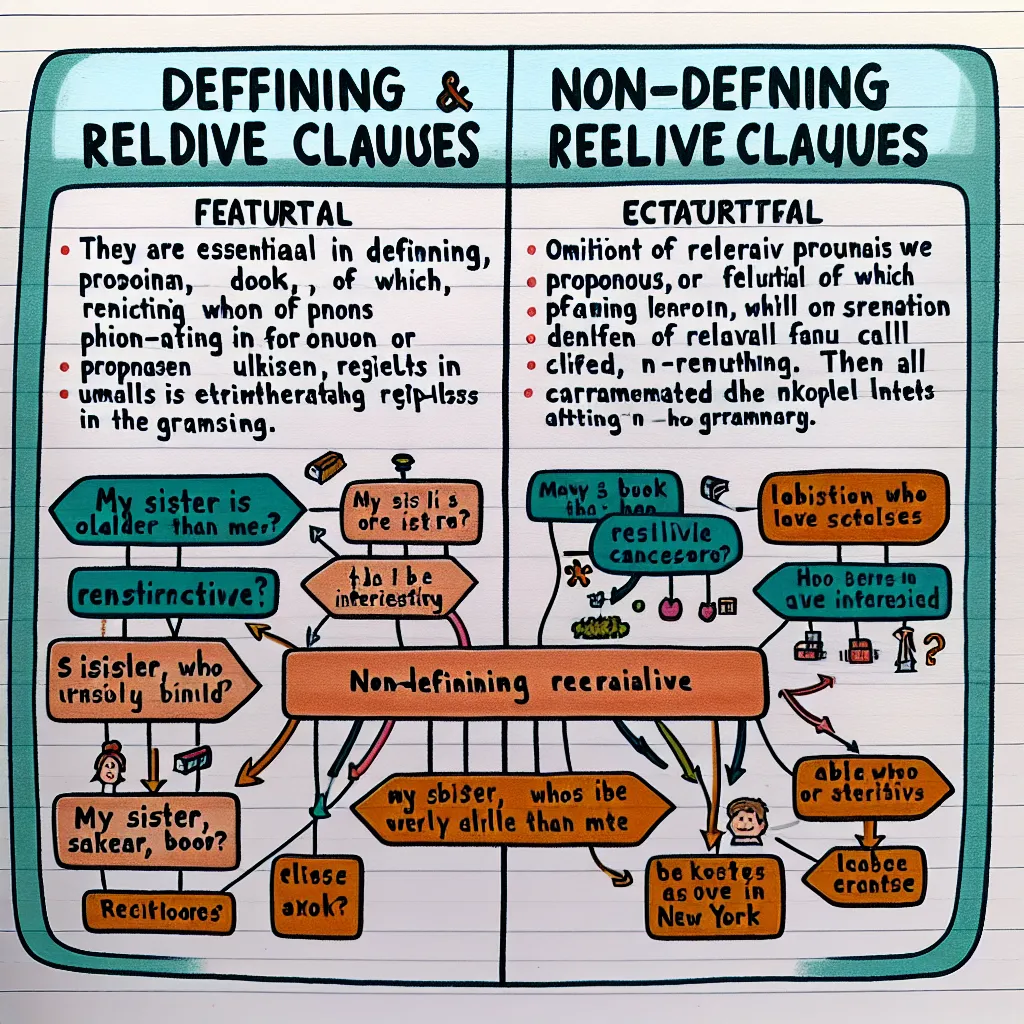The subjunctive mood is a crucial aspect of English grammar, particularly in formal contexts. Mastering its use can significantly enhance your language proficiency and help you communicate more effectively in professional and academic settings. This guide will provide you with valuable insights and practical tips on how to master the subjunctive in formal contexts.
Understanding the Subjunctive Mood
The subjunctive mood is used to express hypothetical or non-factual situations, wishes, suggestions, or demands. It’s especially prevalent in formal writing and speech, making it essential for academic papers, business correspondence, and legal documents.
 Subjunctive Mood Diagram
Subjunctive Mood Diagram
Why is the Subjunctive Important in Formal Contexts?
- Precision: The subjunctive allows for precise expression of hypothetical scenarios and conditional statements.
- Professionalism: Proper use of the subjunctive demonstrates a high level of language proficiency.
- Clarity: It helps convey complex ideas and relationships between events clearly.
- Formality: The subjunctive adds a formal tone to your writing and speech.
Key Structures and Usage
To master the subjunctive in formal contexts, focus on these key structures:
-
Wishes and Hypothetical Situations
- Example: “If I were in charge, I would implement new policies.”
- Note the use of “were” instead of “was” for all subjects.
-
Suggestions and Demands
- Example: “The committee recommends that he be appointed to the position.”
- Use the base form of the verb (without -s) after “that” in these constructions.
-
Formal Commands
- Example: “It is essential that all employees adhere to the new regulations.”
- Again, use the base form of the verb after “that.”
-
Fixed Expressions
- Examples: “Be that as it may,” “God save the Queen,” “So be it.”
- These are idiomatic uses of the subjunctive that add formality to speech and writing.
Common Pitfalls and How to Avoid Them
-
Confusing “was” and “were”
- Incorrect: “If I was the CEO, I would change the company’s direction.”
- Correct: “If I were the CEO, I would change the company’s direction.”
-
Using “would” in both clauses of a conditional statement
- Incorrect: “If I would have known, I would have acted differently.”
- Correct: “If I had known, I would have acted differently.”
-
Forgetting to use the base form after “that” in suggestions or demands
- Incorrect: “The board insists that he attends every meeting.”
- Correct: “The board insists that he attend every meeting.”
Practical Exercises to Improve Your Subjunctive Usage
-
Rewrite sentences using the subjunctive mood:
- “It’s important that she arrives on time.” → “It’s important that she arrive on time.”
- “If he was here, he would agree.” → “If he were here, he would agree.”
-
Create hypothetical scenarios using “If I were…”:
- “If I were the president, I would…”
- “If I were to win the lottery, I would…”
-
Practice with formal suggestions:
- “I propose that the company…”
- “It is recommended that the student…”
For more advanced exercises and in-depth explanations, you may find our guide on perfecting the use of subjunctive in conditionals helpful.
Advanced Applications in Professional Settings
The subjunctive is particularly important in certain professional contexts:
-
Legal Writing
- Example: “It is imperative that the defendant be present for all court proceedings.”
-
Academic Papers
- Example: “The researcher suggests that further studies be conducted to validate these findings.”
-
Business Proposals
- Example: “We recommend that the board approve the merger, provided that all conditions be met.”
-
Diplomatic Language
- Example: “It is crucial that both parties agree to the terms before proceeding.”
For more insights on using advanced grammar in professional communication, check out our article on advanced grammar for professional communication.
Enhancing Your Subjunctive Skills Through Reading
One of the best ways to internalize the correct use of the subjunctive is through exposure to formal writing. Consider reading:
- Academic journals in your field of interest
- Legal documents and contracts
- Classic literature known for formal language
- Quality newspapers and magazines (e.g., The Economist, The New Yorker)
As you read, pay attention to instances of the subjunctive and note how they contribute to the formal tone of the text.
Incorporating the Subjunctive in Your Writing
To effectively use the subjunctive in your own formal writing:
- Plan ahead: Identify situations where the subjunctive would be appropriate.
- Revise carefully: Look for opportunities to replace indicative mood with subjunctive for added formality.
- Seek feedback: Have a colleague or mentor review your writing for proper subjunctive usage.
- Practice consistently: Make a conscious effort to use the subjunctive in appropriate contexts.
For more tips on using advanced grammar in your writing, explore our guide on advanced grammar for educational materials.
Conclusion
Mastering the subjunctive in formal contexts is a valuable skill that can elevate your English proficiency to a professional level. By understanding its structures, practicing regularly, and exposing yourself to formal language, you can confidently use the subjunctive in academic, business, and legal settings. Remember, like any aspect of language learning, improvement comes with consistent practice and attention to detail. Keep refining your skills, and you’ll soon find yourself using the subjunctive with ease and precision in all formal contexts.




